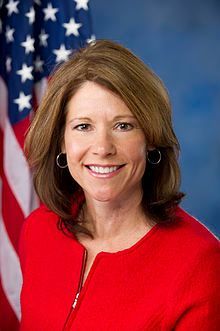Former Congresswoman: How the New Administration will Impact Farmers

During the decade I served in Congress representing a downstate Illinois district, I learned that every new administration brings both challenges and opportunities - and President-Elect Donald Trump will bring both.
Agriculture Secretary nominee Brooke Rollins may be an unexpected choice to lead USDA, but I expect she will be particularly receptive to fresh perspectives from the Corn Growers and the agricultural community. Rollins’ rural roots are a plus for farmers, but running the USDA also demands someone who deeply understands agricultural policy as well. This is where I see an opportunity for the IL Corn Growers Association and other commodity groups. Early in the administration will be a good time to share expertise, helping to amplify key issues as policy is being developed.
Furthermore, when I served in office, I saw how new leaders often relied heavily on industry expertise to shape their understanding of complex agricultural issues. This is where our strength lies - we have decades of on-the-ground experience and data to share. While Robert F. Kennedy Jr.'s appointment to Health and Human Services and his stated positions on issues that impact agriculture has raised eyebrows, I believe this presents an opportunity to educate and engage with leadership about the vital role our corn farmers serve to protect America’s food and energy security and boosting rural economies.
To the question “what does the future of ethanol demand look like in this new era?” The landscape around ethanol policy is particularly interesting. While Project 2025's proposals recommend changes to existing programs, this underscores the importance of having our industry's voice at the table, sharing our vision for legislation like the Next Generation Fuels Act, promoting policies that support year-round E15 and sustainable aviation fuel (SAF), and contributing solutions for rural economic development.
With nearly 10,000 family farms in my previous congressional district, I spent countless hours with Illinois farmers during my time in office. Those relationships matter, and I’ve seen firsthand how tying personal stories and hard data together can shift policy discussions. Our farmers took a real hit from the 2016-2020 tariffs, and it’s critical that the incoming administration hears the voices of farmers and key commodity groups like the Corn Growers as tariffs are being considered and how those could affect the industry’s trade opportunities. Mercury’s and by extension- the Corn Growers’- connections with key figures in the Trump Administration, like Mercury Partner and incoming Chief of Staff Susie Wiles, will be invaluable in ensuring our messages are elevated to the right decisionmakers within the incoming Trump Administration.
Right now, there are many questions yet to be answered on how the new administration will approach policies important to the ag sector, but as we move forward, we must remain proactive and ready to defend the interests of our farmers and industry. We understand that farmers’ livelihoods and communities are at stake, but we’re approaching these changes with the wisdom that comes from generations of adapting to new challenges. With Mercury's deep connections on both sides of the aisle, we are well-positioned to turn these uncertainties into opportunities for positive change in agricultural policy.
Having worked extensively with farmers, I know their resilience and ingenuity. The Corn Growers and Mercury will work together to best ensure that any policy changes ultimately strengthen, rather than diminish, our agricultural sector and the livelihoods of our family farmers.
Cheri Bustos Bio
Former Congresswoman Cheri Bustos is a partner at Mercury, co-chair of Mercury’s Washington, D.C., office and head of the firm’s Illinois and Midwestern operations.
Bustos, who comes from a long line of family farmers, has deep experience in agriculture space. She represented Illinois’ 17th Congressional District for a decade, which is one of the largest agricultural districts in the entire nation with nearly 10,000 family farms, and she was one of the original sponsors of the Next Generation Fuels Act when in Congress.
Bustos served on the House Agriculture Committee, chairing the General Farm Commodities and Risk Management subcommittee, as well as the House Transportation & Infrastructure Committee. and She also served on the powerful House Appropriations Committee, including on some of the most high-powered subcommittees: Defence; Labor, Health and Human Services and Education; Energy and Water; and Military Construction and Veterans Administration.







